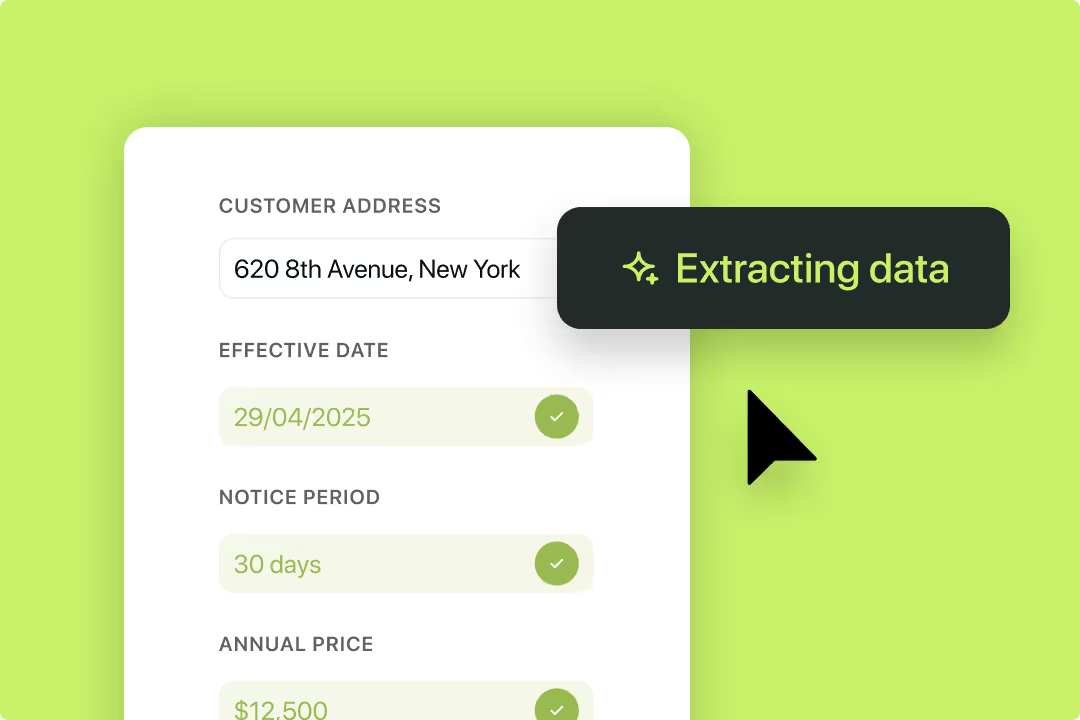Solutions
Customer Support
Resources
Procurement teams may not create a lot of their own contracts, but they certainly play a role in managing them. In fact, procurement teams are often tasked with searching for, capturing and tracking contract data. But few have the right tools in place to do this effectively.
That's where contract lifecycle management (CLM) software comes in. CLM software has the potential to streamline messy and admin-heavy contract management processes for procurement teams, and we'll explain how in this guide. But first, let's debunk some of the most common misconceptions people have about CLM software in the context of procurement.
The biggest misconception is that CLM software should be reserved for legal teams. While legal teams can receive a lot of value from CLM solutions, as can other departments within the business that interact with contracts.
Despite what many assume, CLM software actually gives commercial teams an opportunity to self-serve on contracts, optimize their processes and access a wealth of insights from their contracts that enable them to do their jobs better. This is especially true for procurement teams that use a CLM with post-signature contract management functionality and a data-rich contract repository.
Another common misconception about CLM software is that it’s not useful for third-party contracts, which most procurement agreements are. Again, this isn’t true.
As we’ll discuss in this post, CLM software can store contracts on third-party paper. They just need to be uploaded to the tool, which takes seconds. Once contracts are uploaded and tagged, you’ll have real-time visibility into your contract data and be able to find the documents you need instantly - just like when they’re created in the CLM.

CLM software benefits procurement teams by capturing all of the data they care about in one place.
Traditionally, procurement teams would have to manually extract key data points from contracts and record them in a spreadsheet of some sort. When legal documents are created in a contract management platform like Juro, all of this data is captured and compiled automatically, with no manual admin work required.
Juro’s OCR-enabled search functionality lets procurement teams query contracts in seconds, giving them instant access to contract data like delivery timelines, vendor information, payment due dates, and more.
{{quote1}}
Procurement contracts created on third-party paper can be uploaded and stored in Juro, too. Juro users can drag and drop PDFs and DOCX files to upload them to the platform. They can then select a document type and add tags to the document, allowing them to filter and organize contracts based on the contract metadata.
This functionality provides the business with visibility into all contracts, including those created on third-party paper.
By offering detailed insights into contracts, CLM software also helps procurement teams to identify areas where cost savings can be made.
For example, procurement teams could monitor upcoming contract renewal dates and renegotiate terms with existing suppliers ahead of these. Keeping sight of these deadlines is easy with the help of Juro’s automated contract reminders. The reminders can be set for any key date fields within a contract and customized so that you receive them ahead of time.
These reminders can also be used to flag vendor relationships that have become redundant and give timely notice of your decision to terminate the contract, cutting the costs of these vendors altogether.
{{quote2}}
To find out more about Juro's automated contract reminders and how they'd work for your business, hit the button below for a personalized demo.

CLM systems can also help to streamline the supplier onboarding process by automating key stages of the contract lifecycle.
While most vendor agreements will live on the counterparty’s paper, you’ll still need to share some documents of your own in the onboarding process. NDAs are a great example of this, as they often need to be signed before a company can work comfortably with a vendor.
With a CLM platform like Juro in place, these can be generated and shared with the vendor in seconds. Automating this routine admin work reduces the time and effort involved in onboarding new suppliers, enabling procurement teams to focus on higher-value strategic activities instead.
Given the misconceptions we discussed at the start of this post, CLM software might not be the first thing that springs to mind when you're considering procurement tools. But it should definitely be on your radar.
If your team is struggling to keep track of vendor agreements, or becoming buried in routine contract admin, a CLM tool like Juro could prove transformative. To find out more about Juro's flexible, collaborative and data-rich contract management platform, fill in the form below.
Lorem ipsum dolor sit amet, consectetur adipiscing elit. Suspendisse varius enim in eros elementum tristique. Duis cursus, mi quis viverra ornare, eros dolor interdum nulla, ut commodo diam libero vitae erat. Aenean faucibus nibh et justo cursus id rutrum lorem imperdiet. Nunc ut sem vitae risus tristique posuere.

